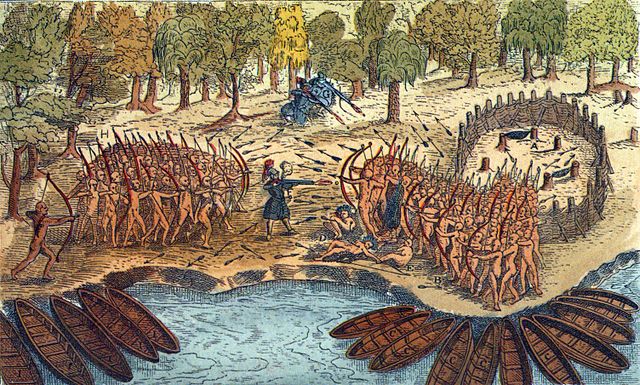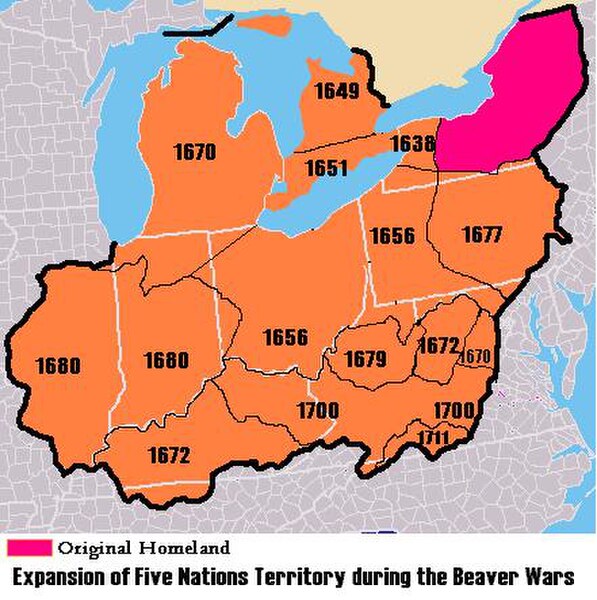The Iroquois, also known as the Five Nations, and later as the Six Nations from 1722 onwards; alternatively referred to by the endonym Haudenosaunee are an Iroquoian-speaking confederacy of Native Americans and First Nations peoples in northeast North America. They were known by the French during the colonial years as the Iroquois League, and later as the Iroquois Confederacy, while the English simply called them the "Five Nations". The peoples of the Iroquois included the Mohawk, Oneida, Onondaga, Cayuga, and Seneca. After 1722, the Iroquoian-speaking Tuscarora people from the southeast were accepted into the confederacy, from which point it was known as the "Six Nations".
Photo of an Iroquois woman in 1898.
Engraving based on a drawing by Champlain of his 1609 voyage. It depicts a battle between Iroquois and Algonquian tribes near Lake Champlain, with interference by the colonialists.
Iroquois conquests 1638–1711
The four "Mohawk Kings" who travelled to London in 1710.
A confederation is a political union of sovereign states united for purposes of common action. Usually created by a treaty, confederations of states tend to be established for dealing with critical issues, such as defence, foreign relations, internal trade or currency, with the central government being required to provide support for all its members. Confederalism represents a main form of intergovernmentalism, defined as any form of interaction around states that takes place on the basis of sovereign independence or government.
Proclamation of Canadian Confederation





